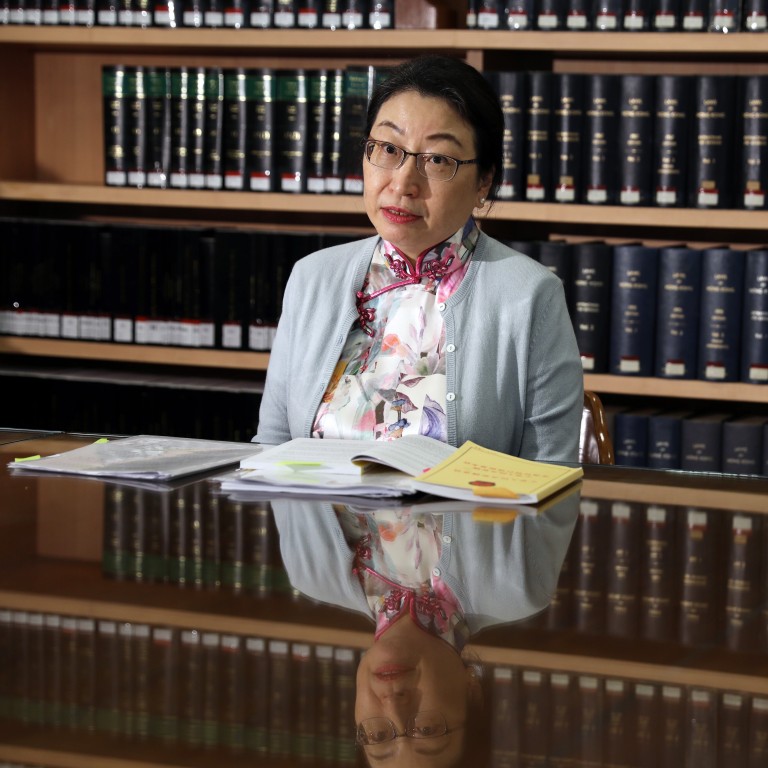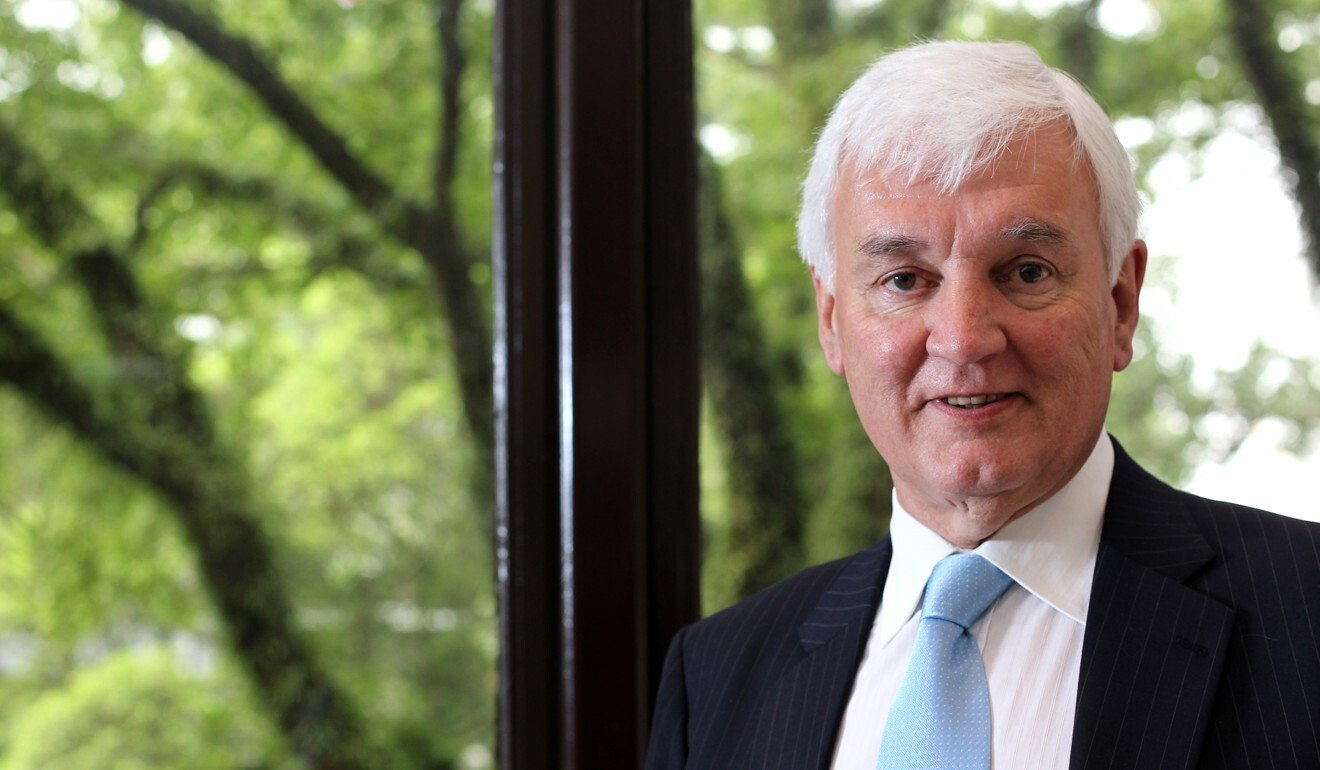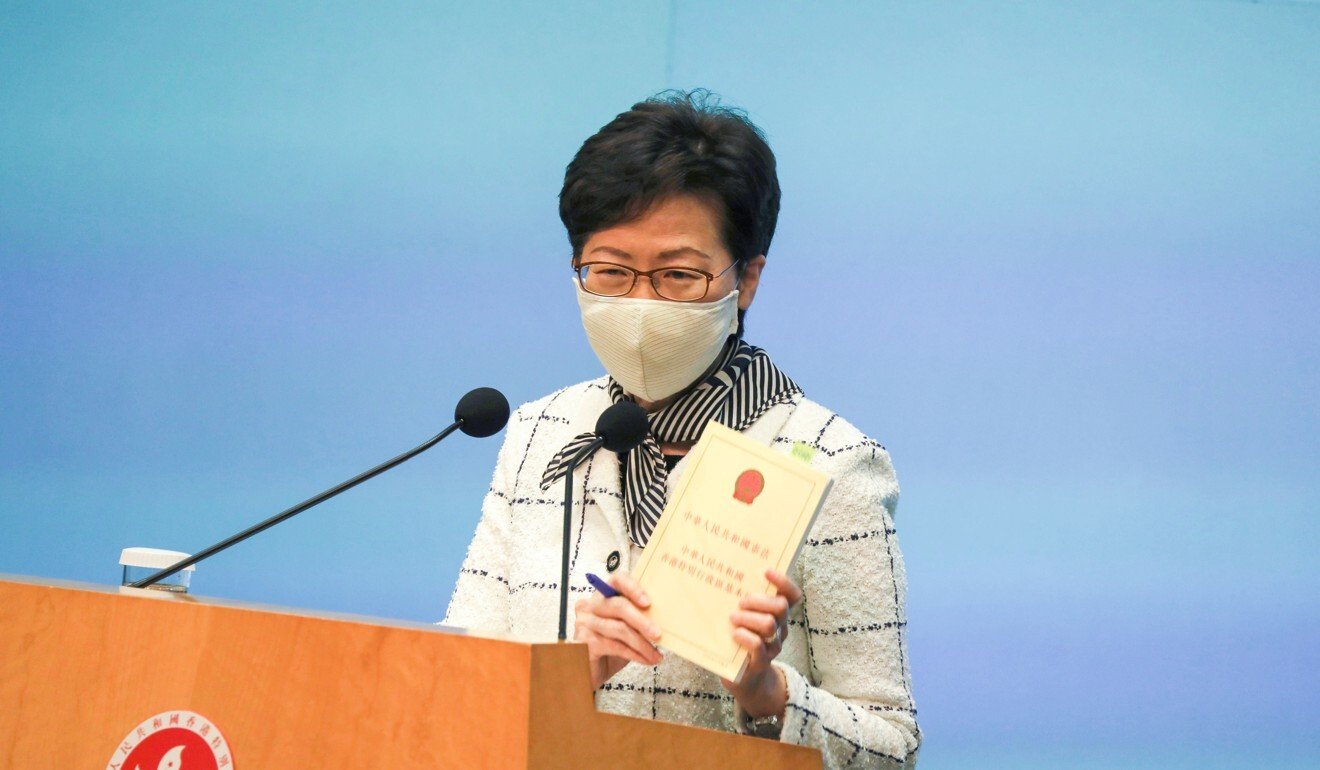
Justice minister Teresa Cheng wades into ‘separation of powers’ debate, saying it ‘has no place’ in Hong Kong
- In a commentary published in the Post, Cheng argues the discussion surrounding the term betrays a ‘pathetic’ lack of understanding of its implications
- The commentary hits back at widespread insistence from the legal community that the concept is indeed practised in Hong Kong
Hong Kong’s justice minister has argued that it is an “oversimplification” to suggest that the concept of “separation of powers” is a given, as the city’s executive-led political system has been repeatedly affirmed by the courts.
“The doctrine of separation of powers is commonly used in the context of political structures of sovereign states,” she wrote. “This doctrine has no place in the political structure of HKSAR.”
Does Hong Kong have ‘separation of powers’? Depends who you ask
But Cheng argued that Hong Kong’s mini-constitution, the Basic Law, laid down a system headed by the chief executive, while the executive, legislative and judicial branches were delegated with powers to discharge their constitutional duty.
“They complement each other with the common goal of ‘upholding national unity and territorial integrity’ and ‘maintaining the prosperity and stability of Hong Kong’,” she said.
Opinion | Why separation of powers has no place in Hong Kong’s political structure
Cheng’s argument, however, did not delve into the city’s existing checks and balances among the three branches, which is often a feature of separation of powers as it is practised elsewhere.
Since the row erupted, opposition lawmakers and legal scholars have noted that even judges have repeatedly referred to the concept in their rulings.
But Cheng maintained a “proper reading of the judgments” revealed that the courts merely used the term to describe the division of labour between the three branches.
She also pointed to Hong Kong court decisions she said affirmed that the Hong Kong government was led by the executive branch.

One such judgment was made by Mr Justice Michael Hartmann in the Court of First Instance in 2007, when he allowed then Legislative Council president Rita Fan Hsu Lai-tai’s decision to block more than 200 amendments to controversial covert surveillance legislation a year earlier.
“While the term ‘separation of powers’ was used, Hartmann highlighted that the Basic Law ‘makes it evident that the administration and the legislature are each to perform their constitutionally designated roles in a coordinated and cooperative manner for the good governance of Hong Kong’,” Cheng wrote.
Cheng also lambasted critics, arguing that the uproar over the term betrayed a lack of understanding of its application in Hong Kong.

“The desperate attempt to try to latch on to a phrase or label without properly understanding what it entails is pathetic,” she wrote.
“When the term ‘separation of powers’ is loosely used in Hong Kong, it is prone to contribute to misinterpretation or misunderstanding of the constitutional order of Hong Kong … One should not just refer to a label, but should objectively review the substance of the Basic Law in ascertaining what the political structure of HKSAR entails.”
Magistrate’s posting to High Court unrelated to complaints, judiciary says
Following the textbook revisions, Carrie Lam fanned the debate around separation of powers when she insisted on September 1 that it had never existed in Hong Kong, despite there being a system of checks and balances between the government’s executive, legislative and judicial branches.
While the city’s pro-establishment bloc firmly supported Lam’s assertion, the Hong Kong Bar Association issued a strongly worded statement rejecting Lam’s claims as “unfounded and inconsistent” with the Basic Law. The association argued that the independent operations of the three branches of government would create a system of checks and balances to guard against abuses and strengthen the rule of law.
However, the cabinet-level Hong Kong and Macau Affairs Office (HKMAO), as well as Beijing’s liaison office in the city, declared in separate statements on Monday that the city had no separation of powers, saying such a stance was made clear by late Chinese paramount leader Deng Xiaoping in the 1980s.


